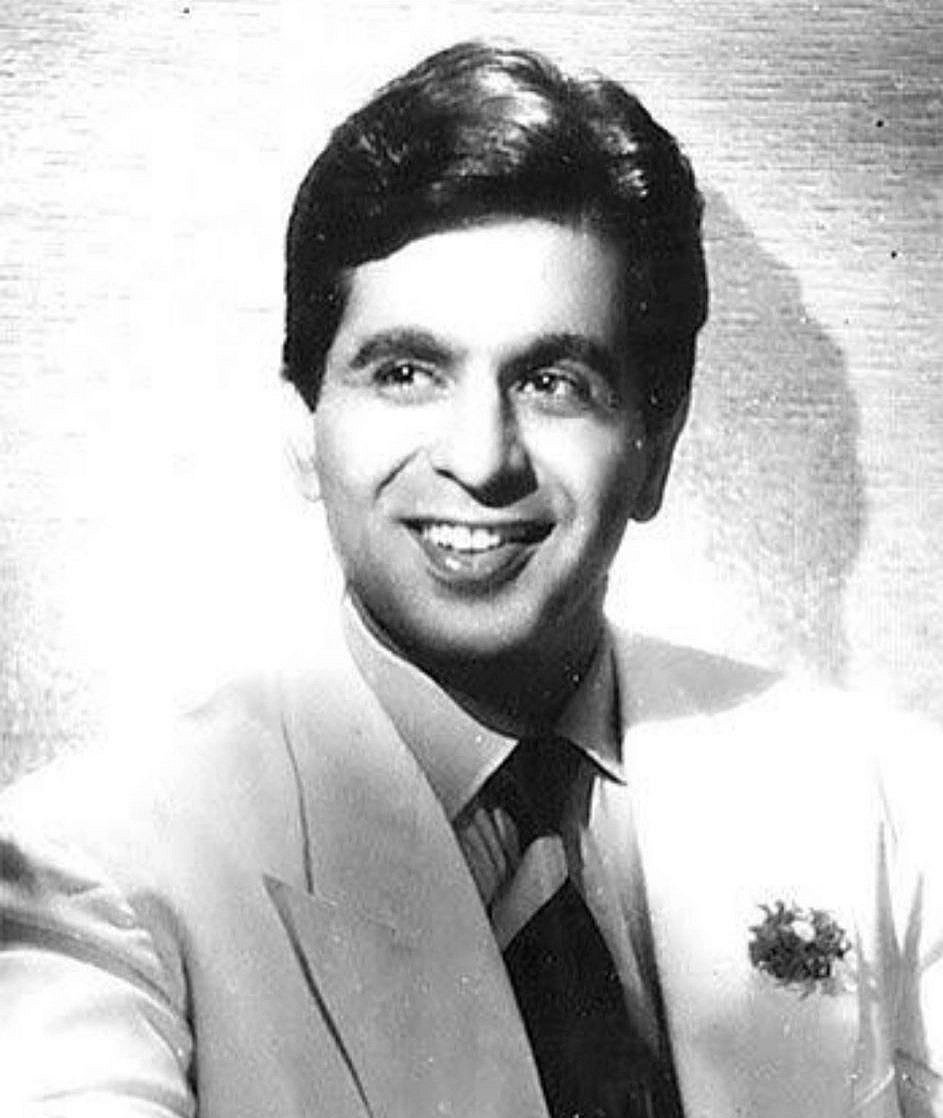'Duniya mein asli shaanti kisi ke sachche pyaar mein hi mil sakti hai, uske bagair duniya jise shanti kehti hai, woh shanti ek thakaan hai, shikast ya maut ka doosra naam hai'
--Sangdil (1952)
The intensity of his craft, the dialogues laced with pauses and the ability to ‘co-exist’ with characters was sheer ethereal joy for cinegoers — 58 years to be exact. The viewer’s initiation into the intricate world of Dilip Kumar's art was through his poetic silences, his considered pauses and his unmatched enunciation, arrows which never missed their mark, emotively or objectively. Most of his acting was by way of pauses and silences, remarkable in an era when theatrics was the norm. That was his METHOD.
Dilip Kumar delved deep into his characters, casting away from the silent-movie style of acting popularised by the likes of Sohrab Modi and Prithviraj Kapoor.
He will be always ‘Amar’ in our memory, for his iconic performances in Devdas (1955), Naya Daur (1957), Mughal-e-Azam (1960), Ganga Jamuna (1961), Kranti (1981), Shakti (1982) and Karma (1986). He was last seen in Qila in 1998. He acted in just 65 films – as if that matters. It’s the manner in which he ruled the screen, wielding complete hegemony over his art and our hearts, that will remain with us forever.
The man, the actor, the persona... call him an enigma or a full reel of streams of consciousness (remember TS Eliot?), was as eventful as a film itself.
He did what his heart said, even though his father, Lala Ghulam Sarwar Ali Khan, termed films and all things associated with the realm as ‘nautanki’. In the future, it would be the same Ghulam Sarwar, known for taking decisions in a jiffy who would tell his kin in Peshawar, “No way, we will not leave Bombay. Now India is our home,” he declared.
Dilip Kumar notes in his autobiography, ‘The Substance and the Shadow’ that by then (in 1947), he was already an actor. His first film, Jwar Bhata, had been released in 1944 and he was working for Bombay Talkies.
From Muhammad Yusuf Khan to Dilip Kumar
It is said that ‘pitayi ki darr se’ was the true reason for his changing his name from Muhammad Yusuf Khan to Dilip Kumar. He did so to avoid getting beaten by his father. He had three options before him: Muhammad Yusuf Khan, Basu Dev and Dilip Kumar.
In his autobiography, he, however, reveals how he became Dilip from Yusuf Khan. “She (Devika Rani) said, quite matter-of-factly: ‘Yousuf, I was thinking about your launch soon as an actor and I felt it would not be a bad idea if you adopted a screen name. You know, a name you would be known by and which will be very appropriate for your audience to relate to and one that will be in tune with the romantic image you are bound to acquire through your screen presence. I thought Dilip Kumar was a nice name. It just popped up in my mind when I was thinking about a suitable name for you. How does it sound to you?”
Went into depression?
Apparently, the intense roles he portrayed in the 50s as the tragic hero eventually affected his mind in some way. He briefly suffered from depression, he said in a rare interview (on YouTube), to BBC’s Mahendra Kaul.
The thespian also spoke of how the advice of his psychiatrist influenced his gradual opening up towards other genres of films and he signed up for lighter roles in movies like Aan, Azaad and Kohinoor. That’s why when Guru Dutt offered him Pyaasa, he politely turned him down, having just plunged into a slough of despair in the wake of Devdas.
He hated being labelled ‘tragedy king’, saying, “Mujhme sab kuchh hai...”
The perfectionist
Before Mohammad Rafi sang the first song for him, Dilip Kumar had made it clear that Rafi would first have to work hard to get rid of his Punjabi accent and perfect his Urdu diction.
He may have been Shehzada Salim in Mughal-e-Azam but on Wednesday, we lost an Emperor.
The writer is Senior Associate Editor, The Free Press Journal




